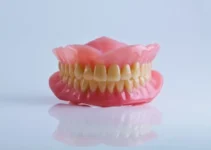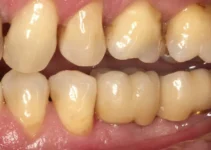Excessive daytime sleepiness, or EDS, is a common condition characterized by an overwhelming sense of tiredness during the day, which can significantly impact daily activities and quality of life. It can stem from various factors including poor sleep hygiene, underlying health conditions such as sleep apnea or narcolepsy, and lifestyle choices. Understanding the root causes of EDS is essential for effectively managing this condition and improving overall well-being. In this article, we explore the potential triggers of excessive daytime sleepiness and discuss practical strategies to alleviate the symptoms.
Causes of Excessive Daytime Sleepiness
Excessive Daytime Sleepiness (EDS) can significantly impact daily life, affecting concentration, mood, and overall well-being. Understanding the causes can help in managing this condition effectively. Here, we explore the primary reasons behind EDS, including sleep disorders, medical conditions, and medications.
It is crucial to identify the underlying causes of EDS to provide appropriate treatment and improve the quality of life. A comprehensive approach often involves a combination of lifestyle changes, medical treatment, and behavioral therapy. 
Sleep Disorders
Several sleep disorders can lead to EDS. One of the most common is sleep apnea, characterized by repeated interruptions in breathing during sleep. This condition often goes undiagnosed but can severely impact sleep quality and lead to excessive tiredness during the day.
Narcolepsy is another sleep disorder that causes EDS. People with narcolepsy experience sudden sleep attacks and overwhelming drowsiness at inappropriate times. This condition stems from the brain’s inability to regulate sleep-wake cycles properly. Insomnia, characterized by difficulty falling or staying asleep, can also cause EDS. Chronic insomnia disrupts the natural sleep cycle, leaving individuals feeling unrefreshed and sleepy during the day.
Medical Conditions
Various medical conditions can contribute to EDS. Hypothyroidism, a condition where the thyroid gland is underactive, often causes fatigue and sleepiness. Proper diagnosis and treatment are essential to manage this condition effectively.
Chronic fatigue syndrome (CFS) is another condition associated with persistent, unexplained fatigue that does not improve with rest. People with CFS often struggle with EDS due to the constant state of exhaustion.
Diabetes can also lead to EDS. Fluctuations in blood sugar levels may cause tiredness and a need for naps during the day. Managing blood sugar levels through diet, exercise, and medication can help alleviate these symptoms.
Medications
Certain medications can induce EDS as a side effect. Antihistamines, commonly used to treat allergies, can cause drowsiness and impact daily alertness. It’s essential to read medication labels and consult with a healthcare provider about potential side effects. Antidepressants and antianxiety medications are also known to cause EDS. These medications can affect the central nervous system and lead to increased sleepiness. Adjusting dosages or switching medications might help reduce EDS symptoms.
Pain medications, especially opioids, can induce drowsiness. If these medications are necessary for managing chronic pain, discussing alternatives or adjunctive treatments with a healthcare provider is crucial to minimize daytime sleepiness.
Understanding the causes of Excessive Daytime Sleepiness is the first step in finding effective solutions. For more in-depth information on managing EDS and improving sleep quality, we invite you to read our other articles on related topics.
Symptoms and Diagnosis
One of the critical aspects of dental health is recognizing symptoms early and seeking timely diagnosis. Understanding the signs and knowing when to consult a specialist can prevent minor issues from becoming severe complications. This section delves into the common symptoms associated with dental issues, the appropriate time to seek professional advice, and the diagnostic tests typically employed by dentists.
Early detection and diagnosis are key to successful treatment outcomes, especially in implantology and bone regeneration. Let’s explore these aspects in detail to equip you with the knowledge to maintain optimal oral health.
Common Symptoms
Dental problems can manifest in several ways, and recognizing the signs early can lead to more effective treatment. Some of the most common symptoms include:
- Persistent toothache or pain
- Swelling or redness of the gums
- Bleeding while brushing or flossing
- Loose teeth
- Receding gums
- Sensitivity to hot or cold temperatures
- Bad breath or a persistent bad taste in the mouth
These symptoms can indicate a range of issues, from gum disease to more severe conditions like periodontal disease or even bone loss. Recognizing these signs early can prompt a visit to the dentist, leading to the prevention of further damage.
When to See a Doctor
Knowing when to see a specialist is crucial. Immediate consultation is recommended if you experience any of the following:
- Severe or persistent toothache
- Visible swelling or abscess
- Loose teeth
- Difficulty chewing or swallowing
- Fever or general feeling of illness
It is also essential to schedule regular check-ups to catch potential issues before they become symptomatic. These check-ups allow for professional cleaning and monitoring, ensuring that any early signs of dental problems are identified and managed promptly.
Even if the symptoms seem minor, such as slight gum redness or occasional bleeding, a professional opinion can determine if these are early signs of a more significant problem. Proactive dental care is crucial for long-term oral health and the longevity of dental implants and bone structures.
Diagnostic Tests
When you visit a dentist with symptoms, several diagnostic tests can help identify the root cause. Common diagnostic tests include:
- X-rays: These provide detailed images of your teeth, bones, and surrounding soft tissues, helping to identify cavities, bone loss, and other issues not visible during a standard examination.
- Periodontal probing: This involves measuring the depth of the pockets around your teeth to assess gum health and detect periodontal disease.
- Cone beam computed tomography (CBCT): This 3D imaging technology offers a comprehensive view of your oral structures, crucial for planning implant placement and assessing bone quality.
Advanced imaging techniques like CBCT are particularly valuable in implantology and bone regeneration, as they allow for precise treatment planning. These tests ensure that your dentist has a complete understanding of your oral health, leading to more effective and tailored treatments.
Understanding the symptoms and diagnostic procedures can significantly impact your dental health. For more in-depth insights into various dental procedures and advances in implantology, explore our other articles. Stay informed and proactive about your oral health!
“`html
Treatment and Management
When it comes to the treatment and management of dental conditions, it is crucial to approach it with a multifaceted plan. A successful strategy often requires a combination of medications, lifestyle changes, and sometimes surgical interventions to ensure optimal oral health.
Advances in dental technology and techniques have greatly improved the outcomes of dental treatments. With the right approach, most dental issues can be effectively managed, leading to a significant improvement in the patient’s quality of life.
Let’s delve deeper into the specific aspects of treatment and management, focusing on medications and lifestyle changes, which are essential components of a comprehensive dental care plan.
Medications
Medications play a critical role in the treatment of various dental conditions. Antibiotics, for instance, are commonly prescribed to treat bacterial infections that can lead to more severe oral health issues if left untreated. Antibiotics such as amoxicillin and metronidazole are often used for dental abscesses and periodontal disease.
Analgesics and anti-inflammatory drugs are also a mainstay in dental treatment. Nonsteroidal anti-inflammatory drugs (NSAIDs) like ibuprofen and naproxen can help manage pain and reduce inflammation after procedures such as tooth extractions or implant surgeries. In certain cases, stronger pain medications may be required to ensure patient comfort.
Additionally, mouth rinses containing chlorhexidine or other antimicrobial agents are frequently recommended. These rinses can help reduce bacterial load in the mouth, contributing to better oral hygiene and faster healing post-surgery.
Lifestyle Changes
Lifestyle changes are a fundamental aspect of maintaining and improving oral health. One of the first recommendations for patients is to adopt a consistent and thorough oral hygiene routine, which includes brushing at least twice a day and flossing daily.
Dietary adjustments are also essential. Reducing the intake of sugary foods and beverages can significantly decrease the risk of cavities and other dental problems. Increasing the consumption of fruits and vegetables not only benefits overall health but also promotes healthier gums and teeth.
Smoking cessation is another critical lifestyle change that can dramatically improve oral health. Smoking is a major risk factor for periodontal disease, oral cancer, and delayed healing after dental procedures. Quitting smoking can lead to rapid improvements in gum health and reduce the likelihood of future dental issues.
Regular dental check-ups and cleanings are also part of a comprehensive lifestyle approach to dental health. These visits allow for early detection and treatment of potential problems, which can prevent more serious conditions from developing. By incorporating these lifestyle changes, patients can significantly enhance their oral health and overall well-being.
For more information about maintaining optimal oral health and the latest advancements in dental treatments, be sure to explore our other informative articles.
“`
Common Questions About Excessive Daytime Sleepiness
If you’re struggling with excessive daytime sleepiness, it’s important to understand the potential causes and solutions. Here are some commonly asked questions that may help you grasp the key aspects of this condition.
What are the main causes of excessive daytime sleepiness?
Excessive daytime sleepiness can be caused by various factors including sleep disorders like sleep apnea and narcolepsy, poor sleep habits, certain medications, and underlying health conditions such as thyroid issues, depression, and diabetes. Lifestyle factors like irregular sleep schedules and excessive alcohol use can also contribute to daytime sleepiness.

My name is Salman Kapa, a 73-year-old expert in bone regeneration and dental implantology. With decades of experience in the field, I am dedicated to advancing our understanding of oral health and hygiene. Through my research and writing, I aim to contribute to the development of innovative solutions in dental care.




